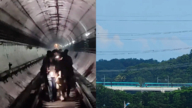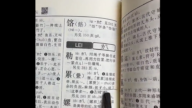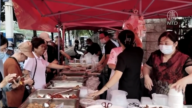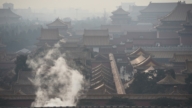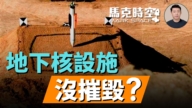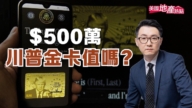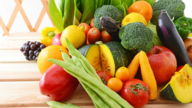【新唐人2014年01月22日讯】中国粮食危机迫在眉睫了吗﹖近期,从中共的经济工作会议、到农村经济工作会议,再到周日公布的“中央一号文件”,“粮食安全”都被列在重要任务之首。分析认为,中共强调粮食安全的背后,中国粮食进口总量正急剧上升,中国粮食危机已迫在眉睫。
1月19号,中共当局公布的“中央一号文件”,把“粮食安全”列入了首要地位,并强调“2014年及今后一个时期,要完善国家粮食安全保障体系”。
去年12月10号至13号,中共召开的中央经济工作会议上,“切实保障粮食安全”被列为2014年经济六大任务的首位,并提出“谷物基本自给、口粮绝对安全”的口号和目标。
美国托莱多大学退休教授冉伯恭:“中国一直是农业大国,中国过去都是以粮为钢,以食物为天,以食为本,这种概念就是自给自足,有足够的粮食对什么都重要,因此一定强调农业的重要性。”
不过,中共媒体一直宣称“中国粮食产量十连增”、“中国能够实现粮食基本自给”,在这样的背景下,中共频频强调“粮食安全”问题,引发舆论关注。
中共农业部种植业司司长曾衍德表示,虽然粮食“十连增”,但每年中国新增的粮食需求也在100亿斤以上,粮食供给偏紧状态,将长期存在。
旅德材料学博士王杰逊指出,由于中共当局近年来大量征地、生态退耕、农业结构调整和自然灾害损毁,耕地污染等问题,中国耕地面积在不断减少。
旅德材料学博士王杰逊:“很多农田被征,过度开发,很多重污染企业都由大城市迁往农村,而且农村新一代务农人员也不断减少,这同时带来另一个问题,就是水污染的问题,像这些高污染的企业,大量工业废水不经过处理就排放。”
王杰逊指出,这些废水一方面威胁着民众的饮用水安全,另一方面通过农业灌溉进入食物链,直接导致了这些年中国粮食产量大减,自给率不断下降。
中国农业生物工程学者张先生:“这个土壤的污染,还有水的污染,这两个条件不解决的话,粮食的问题永远都不会解决,而土壤的污染和水的污染就必须需要国家环保部门的监督检查,而国家环保部门的这方面的工作,中共当局从这几十年来讲根本就没做。”
去年底,中共国土资源部调查显示:中国大约有333万公顷(约5000万亩)农业用地,因遭受严重污染,无法种植农作物。
早在2011年,中共国务院发展研究中心就曾预测,中国粮食进口量将由1997年的416万吨,增加到2020年的2224万吨﹔不过,在2012年,中国粮食进口总量已超过7000万吨。
大陆《财经》杂志曾引述研究部门的推算指出,以2010年粮棉油进口量计算,中国进口农产品的数量,相当于使用了国外大概7亿多亩耕地,等于整个黑龙江省的面积。
2010年10月,《中国食品科技网》记者在东北采访时发现,不管是中储粮直属库,还是国有粮库、民营粮库或者加工贸易企业的仓库,目前基本上都已经空了。
中国“杂交水稻之父”,中国工程院院士袁隆平,他在一篇题为“中国最大劫难已无法避免”的文章中说,中国粮食危机无法避免,将随时引爆中国社会危机。文章披露,中国粮食自给率只有80%出头,80%以上食用油都依赖进口。
2012年,美国农业部说,干旱将使美国的玉米和大豆大幅减产,这更让2011年进口粮食超过6千万吨的中国,承受大动荡、大冲击﹔联合国粮农组织警告,又一轮粮食危机可能爆发。
袁隆平表示:我眼前浮现的分明是一片混乱、人相食、饿孵遍地、流离失所的情景,随时都可以发生,并且已经不可避免。
采访编辑/李韵 后制/钟元
Headline News: Food Security Crisis Is Imminent
Is China’s food crisis imminent?
Recently, food security has been listed as the first major
issue to be tackled at the CCP Economic Work Conference,
the Central Rural Work Conference as well as in the published
“No. 1 Central Document" on Sunday.
Analysts believe that behind the emphasis on food security
lies a sharp increase in food imports, signaling the imminence
of the Chinese food crisis.
On Jan. 19, Chinese authorities announced that the No.1
Central Document, the customary first official document
of the new year, listed food security as the top priority.
The improvement of the national food security system
in 2014 was also stressed in the document.
At the CCP Economic Work Conference which was held
between Dec. 10 and 13 of last year, effectively ensuring
food security was listed as the top task of six major tasks.
The CCP has come up with a slogan to illustrate its goals –
“grain self-sufficiency, absolute security of food rations".
Ran Bogong, University of Toledo professor Emeritus:
“In the past, China had a large agriculture industry.
Since food is China’s first necessity, self-sufficiency
and adequate amounts of food are most important,
emphasis is placed on the importance of agriculture."
But the CCP media has declared that “China’s grain
output has risen for the 10th consecutive year" and
“China can achieve grain self-sufficiency".
The CCP’s frequent emphasis on food security
has attracted the public’s attention.
Director of CCP Crop Cultivation Department Zeng Yande
said that although grain production has risen for the 10th
straight year, tight food supplies will persist with the grain
demand increase, which is now at 100 million tons per year.
Ph.D. in Materials Science and Engineering, Jason Wang,
a Chinese national in Germany, pointed out that China’s
farmland continues to diminish due to a large number
of land acquisitions, ecological restorations,
agricultural structural adjustments as well as
natural disasters, pollution and other issues.
Germany-based Dr. Jason Wang, Ph.D. of Materials Science:
“A significant amount of farmland was requisitioned
and overexploited.
There are increasingly less farmers, many heavily polluting
enterprises move to rural areas from big cities
and discharge a large amount of industrial
wastewater without treatment."
Jason Wang pointed out that not only does the waste threaten
the safety of the drinking water, it enters the food chain via
irrigation, resulting in a greatly diminished grain production
industry and a continually dropping self-sufficiency rate.
China Agricultural Bioengineering scholar Mr. Zhang:
“The food problem will never be solved
if soil and water pollution are not solved.
To resolve soil and water pollution, the state environmental
supervision and inspection departments have to inspect.
However, the CCP environmental protection department
hasn’t done anything in the past decade.
By the end of last year, an investigation by the CCP Ministry
of Land and Source showed that about 3.33 million
hectares (about 5,000 acres) of agricultural land are unusable
due to heavy pollution.
In 2011, the CCP State Council Development Research
Center had predicted that Chinese grain imports would
increase to 22.24 million tons in 2020,
up by 416 million tons since 1997.
However, China’s total food imports reached over
70 million tons in 2012.
Citing the estimates by the research department,
Finance magazine pointed out that based on 2010 cotton,
oil and grain imports, the number of China’s agricultural
imports is equal to the use of 700 million mu’s of foreign
cultivated land, or, the whole of Heilongjiang province.
In October 2010, a China Food Science and Technology
reporter found that not only have the CCP central granaries
been mostly emptied, the state-owned granaries and the
privately owned granaries in the Northeast are nearly empty.
In his article, “China’s Largest Catastrophe Cannot Be
Avoided" the father of hybrid rice, academician
Yuan Longping, said a food crisis can’t be avoided
and a social crisis could erupt at any time.
His article revealed that China’s grain self-sufficiency rate
is only 80 percent and China imports more than 80 percent
of its edible oil.
In 2012, the U.S. Department of Agriculture said that drought
would cause a decline in U.S. corn and soybean production.
China will be heavily impacted by this because its import
of this type was more than 6 million tons in 2011.
China’s Food and Agriculture warned that another
possible food crisis will break out.
Yuan Longping said cannibalism, starvation,
and homelessness may be inevitable.
It can occur at any time, anywhere.
Interview & Edit/LiYun Post-Production/ZhongYuan




